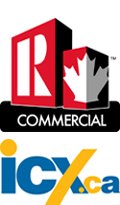
Well, isn't that a loaded question and one that I've discussed before. Actually I came up the title for this piece after reading the following headline and question on Yahoo! Answers:
What is the process in writing an offer for a commercial property?
"I am a residential realtor. I have a client that wants to purchase a $8 million property that is listed by another broker. Do I send the listing broker a “Letter of Intent” or a commercial contract to sign? When a letter of intent is signed by the seller and buyer, does it then go to a real estate attorney? And does the real estate attorney handle the rest? Need Help ASAP!!"
Link to original page here.
The question and the answers (and I use the term 'answers' loosely), were posted about a year ago but they resonated with me because it's the kind of thing I hear from my residential counterparts fairly regularly.
First, the posted answers:1) The answer chosen as the best solution suggested that the best way to move forward is by way of a Letter of Intent (LOI). By itself, this isn't a terrible answer and is often the right thing to do. In this instance though, there wasn't enough information given to know if that would have been the right solution or whether moving directly to an Agreement of Purchase and Sale (APS) might have been the best idea. This first answer, and remember this was chosen as the best answer, went on to say that the agent should at all costs avoid the use of a lawyer because they just charge $300 an hour and get paid whether or not the deal actually closes.
Pardon? It is NEVER advisable to suggest that a customer or client NOT use a lawyer! If they feel that they'd like that extra layer of advice, by all means, encourage it! If an agent tries to discourage a client from using the services of a legal expert (we're not lawyers!) and then something untoward happens that costs the client money or other damages, guess who'll be found at fault? I'll give you three guesses, but the first two don't count...
2) The second answer suggested skipping the LOI and moving directly to the APS. Again, there wasn't enough information to make this call.
3) The third answer suggested that LOIs were a waste of time as they aren't binding. This is usually true, but is not always the case. This answer goes on to suggest that the agent must present the offer in person or he'll never learn why the property is actually for sale or what the seller will accept. He goes on to talk about agents that like to 'play games' with LOIs and bullying agents at the negotiating table. Sounds to me like this guy has had a bad experience somewhere in his past!
4) The final answer, while a little superficial, "...keep your composure; appearance is very important...", does give the best advice of the four, at least as far as it goes, "Many of your questions would be best answered by YOUR broker." At least this answer advises getting further would-be expert advice. The problem with this is that the agent is a residential agent and, in all probability, so it the broker. My hope would be that the broker would give the same advice I'm about to...
Sadly, all four of these answers are wrong.
My answer:Don't do anything you don't have some training to do or where you just don't have a good gosh darn idea of how to do it! If you don't know the process for writing a commercial offer, should you be 'trying it out' on your unsuspecting client?
Absolutely not. I refer to our Code of Ethics, which is now
enshrined in law under REBBA 2002:
5. Conscientious and Competent Service, Etc.
A registrant shall provide conscientious service to the registrants's clients and customers and shall demonstrate reasonable knowledge, skill, judgement and competence in providing those services. O. Reg. 580/05, s. 5.
Interpretation:
This provision, deriving from Rules 1(4), 40 and 42 of the previous code, generally focuses on the duty of care owed to all clients and customers. This duty involves reasonable care and skill in providing accurate information, as well as when performing functions to which the registrant has agreed. The standard of care for this duty is one of reasonableness, i.e., how a prudent and informed registrant would conduct himself or herself under similar circumstances.
What does this mean? It means that you have a legal duty to ensure that any service you offer is offered with the competence and knowledge to support it. If you can't perform your duties to your clients or customers within this guideline - you should not be doing it! Not only are you not providing good service to your client - which should be your chief concern - but since the
Code of Ethics is now part of the
Act, you are breaking the law.
The real solution to such a happy conundrum as having a buyer willing to spend $8M:Refer the deal to a commercial practitioner in your area who does have the knowledge and competence to provide commercial real estate services. Three things happen when you do this that will seem like magic:
1) Your client gets the service he/she deserves and you get to look like the hero for providing said service;
2) Your client will likely get a better deal by having proper representation in the transaction and there will be fewer road-bumps in the negotiation and subsequent due diligence period; and
3) Everybody makes some money! Your client earns a return on investment by successfully purchasing the asset, the agent you refer the deal to earns the lion's share of the commission because they have the expertise to see the deal through to completion, and you earn 25% or more of the commission for filling out a simple referral contract. Sounds like the ideal win-win-win to me!
If you really want to get involved in the wonderful world of commercial real estate, great! Go get some training. Find a mentor who will work with you during your first few years of learning this rewarding business and have fun with it. This is what I did, and every other successful commercial practitioner I've ever met has done the same.
If you want to take your chances and try to work deals like this flying by the seat of your pants, you might get away with it a few times, but, sooner or later you'll get your wrist slapped at best or found guilty in court and fined or jailed at worst. It's up to you, but think hard about your choices before you act.
Read more...













